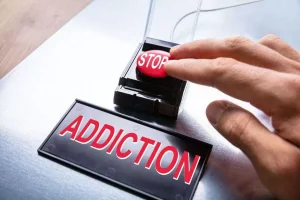
You don’t need any special training or equipment to practice mindfulness and meditation. While you may not feel these benefits immediately as you adjust to becoming more deliberate and self-reflective with how you think and feel, the long-term merits of mindfulness and meditation are sure to be instrumental in your recovery. Effective, lifelong recovery starts by treating the whole person, not just the substance use disorder. This means treating the underlying mental health issues at the root of addiction and providing patients with tools they need for a healthier, more satisfying life. Start small, be patient with yourself, and remember that every moment of mindfulness is a step towards a healthier, more balanced life.
- In our nurturing inpatient residential rehabilitation environment, individuals can focus wholly on recovery, while our dual diagnosis program addresses the intricate relationship between addiction and mental health, fostering holistic healing.
- But today, holistic outpatient rehab is valued for helping its clients to find the balance between their physical, mental, and spiritual selves which is vital for recovering addicts.
- This practice involves directing feelings of love and compassion towards yourself and others.
- To prevent relapse, individuals may be able to use mindfulness to cultivate an awareness of when substance use habits are triggered by substance cues even after an extended period of abstinence.
- We start a new diet or join a fitness club or enroll in a class, and before we know it our enthusiasm fades and the stress ramps up.
- In contrast, there is very little research on moderators of MBIs.
Envisioning a Healthy, Addiction-Free Life
And according to a study published on the nih.gov, meditation practices can be an effective adjunctive therapy for relapse prevention in alcohol dependence. Two primary mindfulness practices are focused attention and open monitoring. With accumulating evidence supporting the efficacy of MBIs, the purpose of this paper is to review the cognitive, affective, https://ecosoberhouse.com/ and neural mechanisms underlying the effects of MBIs on SUDs. Here we also provide clinical recommendations about how these therapeutic mechanisms might be applied to intervening in SUDs and preventing relapse. In this review, we first briefly discuss the etiology of addiction and neurocognitive processes related to the development and maintenance of SUDs.

How well do you score on brain health?
Fourteen percent purported that they were unable to receive their needed services, and 2% say they were unable to access naloxone services. «Mindfulness isn’t difficult, we just need to remember to do it,» wrote the meditation teacher Sharon Salzberg. By remembering to take meditation for addiction recovery part in these mindfulness practices every day, our journey of recovery can become ever deeper, more meaningful, and more rewarding. Intoxication stimulates activity in the prefrontal cortex (the brain’s happiness center), and during withdrawal, it’s extremely under-active.
- MBIs for addiction tend to be multi-week interventions (approximately 8 weeks in duration) usually delivered in a group therapy format.
- As the practice deepens over time, individuals often notice an increase in self-awareness and an improved ability to manage the highs and lows of recovery.
- Contact The Recovery Village to learn about admissions, treatment options and how our programs can help you begin living a substance-free life.
- With regard to the latter, shifting from an addiction-oriented lifestyle to adoption of a wellness lifestyle is conceptualized as integral to the recovery model [87].
Warning Signs of Potential Relapse
Your goal is to observe your feelings and thoughts without engagement or judgment. Individuals who practice meditation gain insights into themselves that help them make decisions that support their physical and mental health and wellbeing. Recovering addicts who keep in touch with themselves through daily meditation are more likely to recognize early warning signs that they may be headed for relapse. They can then use their other recovery tools to keep destructive behavior at bay. Although it’s a helpful tool for managing stress through recovery, it’s not a replacement for treatment.
Can mindfulness really help prevent relapse?
- With so many health benefits, it’s not a surprise that meditation is incorporated in addiction treatment programs.
- Change relationship to discomfort, learn to recognize challenging emotional and physical experiences, and respond to them in skillful ways.
- In so doing, the transitory nature of craving is revealed, and one may realize that craving need not inexorably lead to substance use.
- Stress, anxiety, poor sleep, pain, depression and drug cravings are common complaints as people adjust to life without substances.
- Of the APF survey respondents, 75% reported emotional changes since the beginning of the pandemic, especially increased worry (62%), sadness (51%), fear (51%), and loneliness (42%).
Addictioncenter.com notes several other emotional and environmental triggers as well as warning signs for relapse. Notice how many are outcomes of the pandemic, i.e., loss of a loved one, boredom, etc. One common hurdle is dealing with restlessness and difficulty concentrating. When you first start practicing mindfulness, your mind might feel like a hyperactive puppy, bouncing from thought to thought.

WISE MINDFULNESS

You only need to be willing to try new ways of experiencing the world. Ready to take your recovery from alcohol and drug addiction to a whole new level? Practice being mindful with these tried-and-true activities recommended by recovery expert and author Beverly Conyers—they might be just what you’re looking for.
- People who meditate may also feel more aware of their thoughts, less bothered by unpleasant experiences and better able to control their emotions.
- Cutting the budgets for addiction treatment programs during the worst pandemic in 100 years is incomprehensible, inhumane, and shines an unignorable spotlight on American society’s ignorance, condemnation, and blatant disregard for those afflicted with addiction.
- It’s like planting a garden—you don’t see results overnight, but with consistent care, beautiful things grow.
- The first author (ELG) developed the Mindfulness-Oriented Recovery Enhancement (MORE) intervention, and has received income from the MORE treatment manual (Garland, 2013) and therapist trainings.
- For instance, MORE participants are guided to engage in the “chocolate exercise”— an experiential mindfulness practice designed to increase awareness of automaticity and craving [6].
Find Peace Through Mindfulness in Meditation During Addiction Recovery
A neurocognitive perspective on the etiology of SUDs
Other Proven Addiction Therapy Methods

